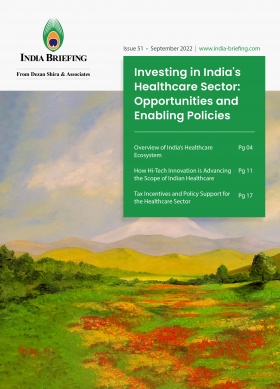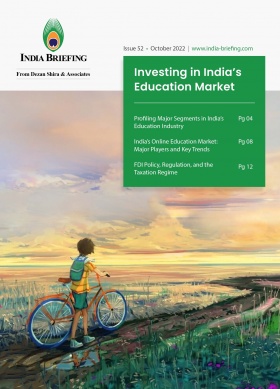Google Loses Bid to Block Indian Android Antitrust Ruling, Assures Cooperation with CCI
The Supreme Court of India has refused to block an antitrust ruling against Google, which alleges its abuse of its dominance in the Android operating system. India’s antitrust regulator CCI has ordered Google to lift restrictions imposed on device manufacturers, including the pre-installation of Google apps. Now, the matter is once again being heard before the NCLAT tribunal. If Google fails to win relief, it will have to make significant modifications to its business model in India, as per directions by the CCI, which will significantly undermine the financial viability of its India operations.
Recently, Google, a subsidiary of Alphabet Inc, suffered a significant setback in India after its bid to have an antitrust verdict overturned by India’s Supreme Court was unsuccessful. The US tech giant had approached the top court to block a ruling by India’s antitrust watchdog, the Competition Commission of India (CCI), which alleged that Google had abused its dominance in the Android operating system. The CCI has ordered Google to lift restrictions imposed on device manufacturers, particularly those relating to the pre-installation of Google-owned apps. Google has also been hit with a US$161 million penalty.
Everything you need to know about Google’s recent antitrust case
With the attempt to seek relief from the Supreme Court proving unsuccessful, Google has said it will need to alter its business model as per CCI directives in India – among the world’s key emerging markets. Google has more than 500 million monthly active users in India, where 98 percent of the smartphones are powered by its popular operating system, Android. As per the new CCI requirement, Google would need to modify its existing contracts, introduce new license agreements, and alter its existing arrangements with more than 1,100 device manufacturers and thousands of app developers. This plausible change in its business model may significantly impact the financial viability of its India operations and Google has warned that such changes would hurt consumers at large.
It must be noted that the deadline to implement CCI’s modifications to Google’s existing business model was January 19, but the Supreme Court has granted a month’s extension.
Google willing to comply but expresses concerns about “India-specific probe”
Google has been facing mounting scrutiny from governments across the globe as policymakers begin to worry about the reach of technology giants and assess whether they are detrimental to the growth of local companies. In fact, in September last year, Google lost its appeal against a record 4.34 billion euro fine levied by the European Union (EU) for using the dominance of Android to thwart competition. Europe’s General Court trimmed it to a slightly lower 4.125 billion euros (US$4.13 billion).
In Germany, the Federal Cartel Office (FCO) noted this January, that Google is violating a 2021 German digital-competition law. In its preliminary statement of objections over the company’s data processing terms, the FCO took issue with how Google collected and connected user data across multiple services. The German antitrust regulator is expected to ask Google to give users more control over how their data is combined from across services and provide clear choice to how users get profiled for targeted ads.
In the case of India, Google asserted that the CCI’s decision and remedial measures were more sweeping than even those imposed in the European Commission’s 2018 ruling when Google was fined for putting in place what the Commission called unlawful restrictions on Android mobile device makers.
However, post the Supreme Court’s refusal to intervene, Google has assured cooperation with India’s antitrust order.
NCLAT to hear Google’s appeal for the final time
The National Company Law Appellate Tribunal (NCLAT), the nation’s appellate tribunal where Google previously failed to obtain any relief, will now hear the case once again from February 15-17, 2023. The NCLAT has until March 31, 2023 to reach a verdict, per the Supreme Court’s order. The challenge for Google is that the company will have to make a number of modifications to Android if NCLAT does not rule in Google’s favor by the end of this month.
News reports indicate that domestic retailers will likely support Google’s claim in the NCLAT hearing by testifying that customers of Google Android devices do not incur any charges when transferring their data to iOS (Apple) devices. Several software packages, including Samsung Smart Switch, OnePlus Clone Phone, Xiaomi Mi Mover, Move to iOS, etc., are reportedly available that make it simple and reasonably quick to transfer important apps, like WhatsApp, from an Android device to an iOS one. The transfer is also reportedly free of charge. Customers can also trade in their Android devices for iPhones and vice versa.
Retailers also claim that because iOS and Android are competing with one another for users, the software packages are evolving quickly. In fact, almost all of iOS’s new consumers in India—if not all—come from Android. In contrast to Europe, where the transition is carried out for monetary consideration, this is drastically different in India. This claim might heavily weigh in the final decision – in the earlier ruling, the CCI’s order holding Google guilty of abusing its dominant position in India stated that there is no substitutability between the 97 percent Android and three percent iOS market in India.
Timeline of all antitrust cases launched against Google in India
Search bias
In February 2018, the CCI fined Google US$161.95 million for “search bias” and abusing its dominant position in the country’s general web search and web search advertising services. The decision was made in response to complaints made in 2012 by Matrimony.com and the Consumer Unity & Trust Society (CUTS).
According to the CCI, Google safeguarded the positions of its apps like Chrome and YouTube in mobile Web browsers and online video hosting by leveraging its dominant position in areas like online search and the Android app store.
Additionally, CCI forbade Google from entering into specific revenue-sharing arrangements with smartphone manufacturers, saying that these agreements had aided Google in securing search service exclusivity to the utter exclusion of competitors.
Android mobile operating system
Upon receiving a complaint from two antitrust research associates and a law student in 2018, the CCI authorised an investigation into Google’s alleged abuse of Android’s market dominance in India. The investigation was launched in April 2019. Nearly 97 percent of 600 million smartphones in India run on Android, according to Counterpoint Research estimates. Apple has just a three percent share.
In September 2019, Google filed a lawsuit against the CCI for the alleged “leak” of a private interim report pertaining to an ongoing inquiry. A few days later, the matter was dismissed, and the CCI complied with the business’ demands to maintain information’s secrecy throughout the inquiry.
Google Play Store and Google Pay
The obligatory usage of the Google Play Store’s payment system for premium apps and in-app purchases was the subject of an investigation by the CCI in November 2020. The probe also looked into whether Google’s payment service, Google Pay, had misused its market-dominating position.
Smart TV market
A CCI probe into claims that Google abused its dominance of the Android operating system in the Indian market for smart televisions was requested in June 2021. Following a complaint submitted by two attorneys, Kshitiz Arya and Purushottam Anand, the investigation was commissioned.
In its order, CCI stated that based on the facts at its disposal, it is “convinced that a case is made out for initiating an inquiry by the Director General (DG)” and that, “our initial assessment is that Google is dominant in the market of licensable smart TV device operating systems in India.”
News aggregation
Following a complaint from the Digital News Publishers Association (DNPA), CCI on January 7, 2023, launched a new antitrust inquiry into Google for alleged abuse of dominant position in news aggregation.
About Us
India Briefing is produced by Dezan Shira & Associates. The firm assists foreign investors throughout Asia from offices across the world, including in Delhi and Mumbai. Readers may write to india@dezshira.com for more support on doing business in in India.
We also maintain offices or have alliance partners assisting foreign investors in Indonesia, Singapore, Vietnam, Philippines, Malaysia, Thailand, Italy, Germany, and the United States, in addition to practices in Bangladesh and Russia.
- Previous Article India’s Antitrust Regulator Could Impose Penalty Fines on Entity’s Global Turnover
- Next Article Delhi-Mumbai Expressway: Delhi-Dausa-Lalsot Section of India’s Longest Expressway Opens










